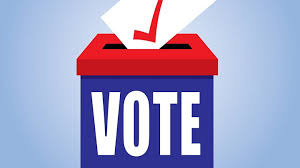
I am not a television enthusiast. I believe that the television may be one of the worst inventions in the history of mankind, though it may have been conceived with good intentions. I find that TV in general rots the brain and contributes to poor development of critical thinking skills. Truly, there is no substitute for reading a good book.
That said, I do enjoy some programs, though the apparent dearth of quality programming has left a sizeable hole, allowing more time between binge sessions of “Friends” and “The Office.” I sometimes enjoy filling these gaps with documentaries from National Geographic. Television might as well convey knowledge and logic, I figure, so I look for anything from Archaeology to Nature.
One recent documentary focused on the appearance of certain regions from above. One shot from this program caught my attention. Aerial footage showed a shepherd leading his flock through a gate into a fenced area where the sheep would be fed. The narrow gate slowed the large flock considerably, given the lack of an alternative route and that all the animals needed to get through that one opening.
The same principal seems to apply when discussing road and traffic planning. Ostensibly, larger roads lead to less congestion because more cars can get through a wider opening simultaneously. Though studies have debunked that idea as myth, the overall concept remains true.
What if the premise can be applied to voting? The national discussion on the upcoming election has predictably turned into partisan squabbling, but one cannot ignore the news regarding how this election will play out.
Reportedly due to the COVID-19 pandemic, polling places are being limited and closed for the upcoming election, which has led to great concern over delays. While many states are encouraging mail-in or absentee voting, some jurisdictions consider that problematic. According to recent news, Texas is limiting ballot drop-off boxes to one location per county. While that may work when most counties are small and sparsely populated, it becomes a bigger problem when considering Harris County, the county that encompasses Houston and its suburbs. Five thousand people spread over five hundred square miles should make voting relatively painless, but if more than two million people need to use the same drop box, you can bet that fewer will attempt to go that route due to delays.
If this is all a strategy to limit the number of votes that will count in determining national and local leaders, I can scarcely imagine a more underhanded and undemocratic tactic. If it is merely a side-effect to a real and dangerous disease, then it should follow that more voting options are given instead of fewer. A wider route will allow more to pass through it, but more routes will do the job more efficiently.
Some have called this election the most important election in the history of our country. I contend that we should look around and see what is really going on. Rage over race relations, white supremacist hate groups plotting violence on their fellow citizens (and leaders), climate change-fueled wildfires, hurricanes, and a disease that has so far killed more than 200,000 Americans are not issues we should take lightly. And while none of these can be solely blamed on the politicians we have elected, we should understand that what those leaders do to mitigate the threats and cool the resultant tensions matters.
To top that with claims that the election will be fraudulent if too many people are allowed to vote only widens the divide.
American politics is broken. The “presidential debate” this week has made that truth patently obvious. As one pundit put it (and I’m paraphrasing), everyone talks at one another and no one listens.
We cannot hope to solve the many issues that plague us if everything is broken down to party lines and we continue to name-call, interrupt, and find fault with everything. These are not debate tactics. They are nothing more than debauchery, which does not solve problems.
This is the system we have now. It has descended into a game of forced mud-slinging, and candidates who choose not to participate are relegated to the sidelines where too few of us roam. I sincerely hope that in the next few years we can break free from this cycle and learn once again to listen and to participate respectfully.
New York Times best-selling author Sharon Salzburg noted that “Voting is the expression of our commitment to ourselves, one another, this country, and this world.”
We cannot let anyone attempt to dissuade us from exercising one of our most basic patriotic duties. Whether you choose to drop a ballot in a mailbox or brave a physical polling location (please wear a mask and practice social-distancing if possible), make sure your voice is heard. The future of this nation depends on it.
Note: If you would like to comment, please do so respectfully. Divisive and/or bullying comments will be deleted. This is not a forum to advertise your chosen party or candidate, so please refrain from doing so.